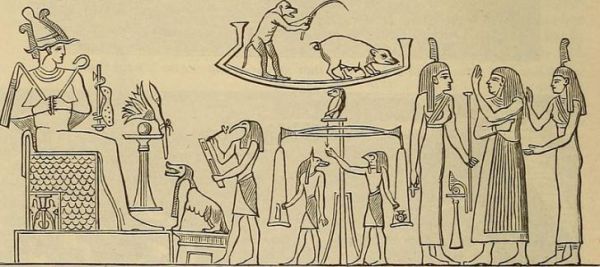The History of a Taboo

One village that provided livestock was Kom el-Hisn, located in the Nile delta about seventy-five miles downriver from the temple complex. Villagers at Kom el-Hisn raised cattle but ate very little beef: only the bones of worn-out breeding cows and sick calves have been uncovered there. Instead, the villagers ate pork: for every four cattle bones archaeologists unearthed at Kom el-Hisn, they found one hundred pig bones. It seems that the residents kept herds of pigs that foraged in the Nile delta marshes and scavenged trash on streets. Although Egypt’s rulers demanded cattle from Kom el-Hisn, along with goats and sheep from other settlements, the villagers’ pigs were spared.On the one hand, this was a good thing because it left poor isolated villages with food for themselves. On the other hand, it gave pork a reputation as the poor man’s meat. As pigs don’t travel well, and require a more reliable water supply than cattle or sheep, it makes sense that desert nomads had no use for them. In cities, pigs gained a reputation as unclean because they scavenged for food, and in an urban environment they only found waste products. Is it any wonder that several religions considered pork taboo? Meanwhile, cultures outside the deserts of the Middle East embraced pork. Read the story of how pigs became “the world’s most divisive meal” at Longreads.
The reasons for this had to do with climate and biology. Animals destined for Giza had to walk hundreds of miles through an arid landscape, feeding on grass and leaves along the way. Well suited for such a journey, cows, goats, and sheep were herded to Giza by the thousands. Pigs, however, would not have found the food or shade they needed along the way. The state couldn’t move pigs around, so it ignored them.

No comments:
Post a Comment